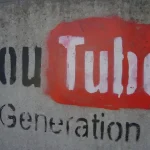Although it’s currently the world’s most popular video hosting site, YouTube is anything but perfect. Recently, YouTube has faced issues like unfair bans, unclear ToS updates, and a flawed copyright system.
For anyone who’s dealt with YouTube as a creator, these are nothing new.
Many of these, notes games and entertainment publication Polygon, can be traced back to YouTube’s overreliance on algorithms. Google has decades of experience refining its search engine, but YouTube is still relatively young. Despite being a top video distributor, YouTube often seems to be fumbling in the dark.
To be fair to YouTube
they must sift through uploads comprising over 500 hours of content a minute. Without algorithms, YouTube couldn’t manage even a fraction of its content. It needs to automate in order to remain viable at all.
“YouTube is facing the same problems as Twitter and Facebook; content management and lack of oversight,” notes Polygon’s Julia Alexander. “They avoid responsibility for harmful or disturbing content spread on their platforms. They’re also too big to be able to vet every single tweet, Facebook post or video.”
Yet this is small comfort to the content creators facing down demonetization at the hands of an impersonal, automated enforcement system. It offers little recourse in terms of the targeted abuse often perpetuated through YouTube’s DMCA system, which per BBC News is frequently used for extortion. And it does not excuse YouTube’s vague, hands-off approach when it comes to ToS updates, the most recent of which has been viewed by some as little more than an attempt to stave off a PR crisis.
Yet even amidst these blunders, it’s unlikely YouTube will suffer any lasting harm. Even amidst a flurry of frustration directed at the platform by creators, many of whom feel their complaints are falling on deaf ears, YouTube doesn’t really need to course correct. This is because, at the time of writing, there exists no meaningful competition for YouTube.
There are other video sites like Dailymotion.
There are other streaming sites like Twitch. But at the end of the day, YouTube is very much the Facebook of Internet video. Too big to fail, too prolific to be replaced.
Particularly as Google continues to establish its position as one of the titans of the modern web — alongside Amazon, Apple, and Microsoft — that seems highly unlikely to change. Unlikely, but not impossible. It’s a tale as old as time.
A company releases or acquires game-changing technology.
That technology becomes a household name and changes the world in the process. Success after success makes its owner grow complacent. Then it’s replaced, either by an upstart entrepreneur’s brainchild or by a large-scale competitor.
YouTube may be ubiquitous for now, but this may not always be the case. Particularly with the high-profile departure of top YouTuber PewDiePie, the time may be ripe for a new contender to step into the ring.
What that competitor would look like and what it would offer, however, is unclear.But it could happen, and YouTube would do well to understand that. If it doesn’t make an effort to mend fences and rebuild the bridges it has burned with its creators, it could very well be looking at a mass exodus in the not-so-distant future.




